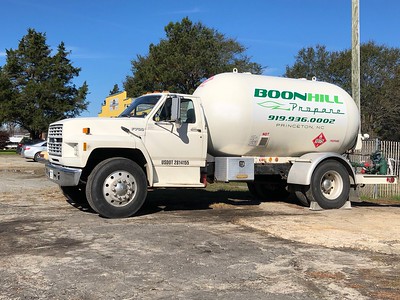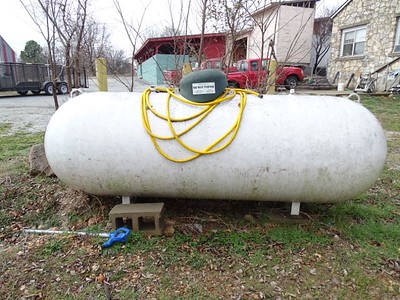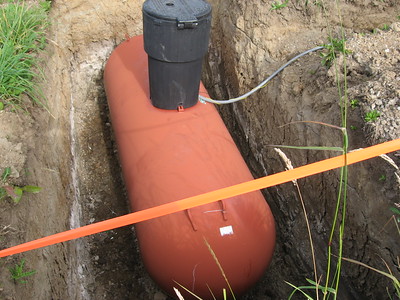
If you have a 250-gallon propane tank for your home, you may be wondering how often you need to fill it. The answer depends on a few factors, including the size of your home, the number of people in your household, and your average energy usage.
According to the Energy Information Administration, the average U.S. household uses about 911 gallons of propane per year. This means that a typical family of four would use about 2.3 gallons of propane per day.
However, propane usage can vary greatly from one family to the next. For example, families who live in colder climates or who use more energy-intensive appliances (like dryers and water heaters) will generally use more propane than those in milder climates or who have more efficient appliances.
The affecting factors are:
- Seasonal Changes
- In winter, you might use more propane because it’s cold and you need more heat. For example, if you use 2 gallons a day in summer for cooking, in winter you might use 4 gallons for heating and cooking.
- How Good Your Appliances Are
- If your appliances like heaters or stoves are old or don’t work well, they use more propane. A new, efficient heater might use 1 gallon a day, while an older one might use 3 gallons for the same heat.
- Size of Your Family and How You Use Propane
- More people in the house usually means using more propane. For example, a family of 4 might use 3 gallons a day for showers, cooking, and heating, while a family of 2 might only use 1.5 gallons for the same things.
As a result, it’s difficult to say exactly how often you’ll need to fill your 250 gallon propane tank. However, you can expect to need a refill about once every three to four months if you have an average-sized home and family. If you have a larger home or family, or if you live in a colder climate, you may need to refill more frequently.
Read related article: How Old Can A 250 Gallon Propane Tank Be?
Calculating Propane Needs for a 250-Gallon Tank
- Understanding Propane Consumption Rate
- Calculate the daily propane consumption in British Thermal Units (BTUs). Each appliance has a BTU rating. For example, a propane furnace might use 100,000 BTUs per hour. If it runs for 4 hours a day, it consumes 400,000 BTUs daily.
- Converting BTUs to Gallons
- Propane has an energy content of about 91,500 BTUs per gallon. To convert BTUs to gallons, divide the daily BTU consumption by this number. For the furnace example, 400,000 BTUs ÷ 91,500 BTUs/gallon = approximately 4.37 gallons per day.
- Estimating Tank Refill Frequency
- To estimate how often the 250-gallon tank needs refilling, divide its capacity by the daily usage. For the example above, 250 gallons ÷ 4.37 gallons/day = about 57 days between refills under these specific conditions.
- Case Study for Illustration
- Consider a household with a propane furnace, water heater, and stove. Assume the furnace uses 4.37 gallons/day (as above), the water heater uses 1.5 gallons/day, and the stove uses 0.5 gallons/day. The total daily usage is 6.37 gallons.
- Using the 250-gallon tank, the refill frequency would be 250 gallons ÷ 6.37 gallons/day ≈ 39 days.
This method provides a technical approach to estimating propane needs, considering specific appliance usage and their BTU ratings, and translating these into a practical refill schedule for a 250-gallon propane tank.
Read related article: 5 Simple Ways How to Move 250 Gallon Propane Tank
How Many Gallons of Propane Does a 250 Gallon Tank Hold?
A 250-gallon propane tank typically holds around 250 gallons of propane when full. However, it’s worth noting that propane tanks are not filled to capacity, as propane expands and contracts as the temperature changes. Because of this, a 250-gallon tank is typically filled to around 80% of its capacity, which is around 200 gallons, to allow room for expansion and contraction of the propane.
Additionally, it’s important to note that tanks have a tare weight, which is the weight of an empty tank. The tare weight subtracts the weight of the tank itself and leaves the weight of the propane. Since propane is sold by weight not by volume, it’s better to know the weight of the propane and not the capacity of the tank when figuring out the amount of propane.
It’s always best to check with your propane supplier to know the exact amount of propane that your 250-gallon tank holds when filled. This way, you can plan for refills and monitor your propane usage to ensure you don’t run out of propane unexpectedly.
This is How Often Most Homeowners Fill Their Tanks
On average, a 250-gallon propane tank will need to be refilled every 3-5 months. However, this can vary depending on your propane usage. If you use a lot of propane for cooking or heating, you may need to refill your tank more often. Conversely, if you don’t use much propane, you may be able to go longer between fill-ups.
The size of your tank can also affect how often you need to fill it. A smaller tank will need to be refilled more frequently than a larger tank.
This is because a smaller tank will run out of propane faster than a larger tank. If you’re not sure how often you need to fill your 250-gallon propane tank, check with your local propane supplier. They can help you estimate your propane usage and determine the best schedule for filling your tank.
- Keeping an Eye on Your Propane Levels
- It’s important to regularly check how much propane you have left. Think of it like checking your car’s fuel gauge. You can do this by looking at the gauge on your tank or using a special electronic monitor that tells you the level.
- Setting Up a Refill Schedule
- Once you know how fast you’re using propane, you can plan when to get more. You can work with your propane supplier to set up a schedule. For example, if you know your tank lasts about 40 days, you can arrange for a refill every 35 days to be safe.
- Knowing The Costs
- Filling up a 250-gallon propane tank can cost different amounts at different times. The price can change based on how much propane costs in the market and how much people want it. In winter, when lots of people need propane for heating, it might cost more.
By keeping track of your propane levels and working with your supplier, you can make sure you never run out. And by understanding how prices can change, you can budget better for your propane needs.
Climate Affects Propane Usage
Climate is one of the factors that can affect propane usage. Specifically, temperature and humidity can have an impact on the amount of propane that is consumed.
- Temperature: In cold weather, propane is used to heat homes and buildings. As the temperature drops, the demand for propane increases, which can lead to higher usage. Conversely, milder temperatures mean less demand for propane as a heating source, resulting in lower usage.
- Humidity: Humidity can also affect propane usage, as propane is often used for air conditioning. High humidity can lead to increased usage of air conditioning, which in turn can lead to higher propane consumption. Low humidity can lead to less demand for air conditioning, resulting in lower propane usage.
It’s worth noting that other factors that can affect propane usage include the size of the propane tank and the size of the building or home, the energy efficiency of the appliances, and the lifestyle and habits of the inhabitants. For example, how often and how long the appliances are used, how well the building is insulated, and the number of people living in the house, can all influence propane usage.
Appliance Affects Propane Usage
Appliance usage is another factor that can affect propane usage and how often you need to fill your propane tank. Specifically, the number and types of appliances that use propane can have an impact on the amount of propane consumed.
- Number of appliances: The more appliances that use propane, the higher the usage will be. Common propane-powered appliances include water heaters, stoves, and furnace, so having more of these appliances in a building or home will result in higher propane consumption.
- Types of appliances: Different types of appliances use different amounts of propane. For example, a propane-powered furnace will use more propane than a propane-powered grill. Similarly, a modern and energy-efficient appliance will use less propane than a older, less efficient one.
BTUs of Appliances in the House Has Significant Effect
BTUs, or British Thermal Units, is a measure of the energy consumption of an appliance. The number of BTUs an appliance uses is an indicator of how much propane the appliance will consume.
Propane appliances are rated in BTUs per hour, which tells you how much energy the appliance uses in an hour. The higher the BTU rating, the more propane the appliance will use. For example, a propane-powered furnace with a BTU rating of 100,000 will use more propane than a propane-powered grill with a BTU rating of 20,000.
It’s important to consider the BTU rating of an appliance when selecting a propane-powered appliance, as it can affect the overall propane consumption of the building or home and how often you need to fill your 250-gallon propane tank. High BTU-rated appliances such as Furnaces, Boilers, and dryers use more propane than low BTU-rated ones like gas stoves, grills, or fireplaces.
It’s also important to have your appliances regularly serviced to ensure they are running at peak efficiency, which can help to minimize propane consumption.
To Make a Conclusion
How Often Do You Have to Fill a 250-Gallon Propane Tank? It is typically recommended that you fill your 250-gallon propane tank every two to three months. However, this will vary depending on how much propane you use during that time period. If you use propane frequently, you may need to fill your tank more often than if you use it less frequently. Ultimately, it is best to follow the manufacturer’s guidelines for how often to fill your tank.

Mike is an experienced propane technician with over 15 years of professional experience in the field. He has dedicated his career to helping customers with their propane needs, from installation to maintenance and repair. Together with Jeremy, he co-founded this website to provide useful information and guidance to customers seeking reliable propane services.







